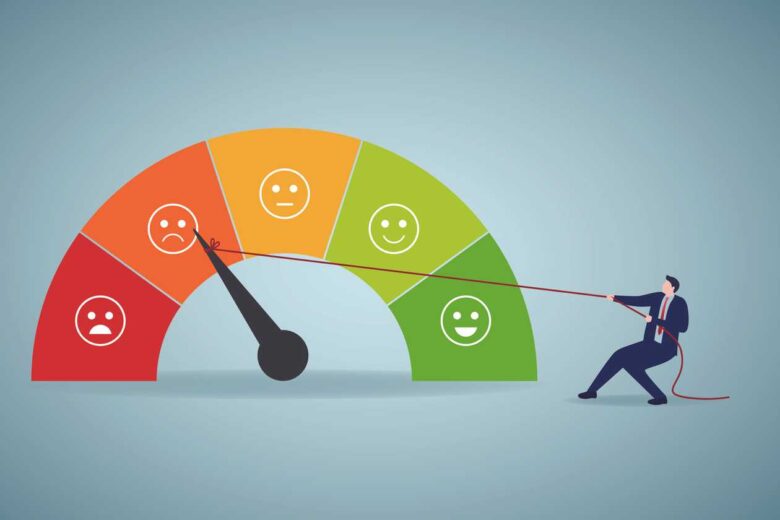In the real estate industry, buying a home is often considered one of the most important events in a person’s life. But the road to housing is fraught with obstacles and things to think about. A credit score is one of the most important scores. Your credit score is a number that indicates how creditworthy you are. It affects your ability to get a mortgage, the interest you pay, and ultimately your ability to own a home. This article explores the many ways your credit score affects the home-buying process. We also investigate how these influence financial choices and opportunities.
Understand your credit score:
Before you understand what a credit score means, it’s important to understand its basic principles. Credit scores, which typically range from 300 to 850, are calculated by looking at information such as payment history, credit limit used, length of credit history, type of credit account, and new credit applications. Lenders use these numbers to calculate how risky it is to lend money to someone who wants to borrow it. People with better credit are less likely to default on their loans, making them more likely to get a loan on good terms.
Taking out a mortgage:
Accepting a mortgage is one of the most important ways your credit score affects the home-buying process. Mortgage lenders look at an applicant’s credit score to see how solid their financial situation is and how likely they are to repay their loan on time. Different lenders have different requirements, but in general, a credit score of 620 or higher is fine for a conventional mortgage, although the interest rate may be higher or lower. On the other hand, a credit score above 740 often leads to better terms, such as a lower interest rate and a smaller down payment.
Interest:
Credit scores have a major impact on the mortgage rates offered by lenders. Lenders are more likely to make loans to people with better credit because they are considered less risky. On the other hand, people with lower credit scores may face higher interest rates, which can mean higher long-term costs and make life more unaffordable. Even small changes in interest rates can have a big impact on your monthly mortgage payment and the total amount you pay over the life of your loan. This shows how important your credit score is for obtaining good loan terms.
Deposit required:
In addition to the interest rate, your credit score can also change the amount of down payment you need. A standard mortgage typically requires a down payment of 3 to 20 percent of the home’s purchase price. However, borrowers with lower credit scores may need to make a larger down payment. On the other hand, people with good credit may be able to get lower down payment options, allowing them to keep more cash or use that money for other financial purposes. So a credit score not only affects whether someone can buy a house but also the amount of down payment he or she has to make.
Loan approval:
In addition to your mortgage, your credit score is important in obtaining other loans you need to buy a home. Lenders check an applicant’s creditworthiness to reduce risk and determine whether they can make loans, such as home loans and construction loans. A strong credit profile and high credit score can speed up the loan approval process, giving people more options and negotiating power when buying or selling a home. On the other hand, bad credit can make it harder to get a loan or require higher interest rates and stricter terms, making it harder to buy a home.
Ways to improve your credit score:
Credit scores have a big impact on the home-buying process, so there are many things people looking to buy a home can do to boost their credibility. Paying your bills on time, reducing your credit card balance, and avoiding too many new credit applications are all important things you can do to improve your credit score. Additionally, regularly checking your credit history for errors and resolving any problems found can improve your credit score and make it easier to get good loan terms. People can increase their chances of getting a cheap mortgage and achieving their dream of homeownership by managing their credit.
Conclusion
For people who want to buy a house, their credit score is very important because it affects all their financial decisions and choices. From mortgage underwriting to interest rates and down payment requirements, your credit score has a significant impact on the likelihood and affordability of purchasing a home. Credit scores matter, so people looking to buy a home should prioritize maintaining and improving their credibility through smart money management. By doing this, people can gain the courage to negotiate the complex real estate market, obtain good loan terms, and ultimately achieve their goal of becoming a homeowners.
FAQs
1. What is a credit score and why is it important if you want to buy a house?
A credit score is a number that tells lenders how creditworthy you are, based on information such as how well you pay your bills, the amount of credit you use, and how long you have had credit. It’s important because lenders use it to calculate how risky it is to give you a mortgage. Typically, better terms and lower interest rates come with a higher credit score.
2. How much credit is needed to buy a house?
The exact credit score you need can vary depending on the company and the type of mortgage you want. A score of 620 or higher is usually good enough for a conventional mortgage, but looking for a score above 740 can lead to better terms.
3. How does credit score affect mortgage interest rates?
Mortgage interest rates largely depend on your credit score. Lenders view people with higher credit scores as less risky and therefore often offer lower interest rates. In contrast, someone with a lower credit score may have to pay more for their loan, which can make homeownership more expensive in the long run.
4. What should I do if I have bad credit and want to buy a house?
It is possible to buy a home even with bad credit, but it can be difficult. People with lower credit scores may have to pay more for their loans, pay more interest, and make a larger down payment. Before applying for a mortgage, consider other options, such as government-backed loans or working to improve your credit score.
5. What can I do to improve my credit score before buying a house?
There are many things you should do to improve your credit score before buying a home, such as paying your bills on time, reducing your credit card balance, avoiding new credit applications, and checking your credit report for errors. Some other things that can help you improve your score are maintaining a good mix of credit accounts and not closing old accounts.
6. Do different types of loans have different credit score requirements?
Yes, different types of loans may require different credit scores. For example, FHA loans and other government-backed loans may accept lower credit scores than regular mortgages. On the other hand, a lower credit score usually means stricter terms and higher interest rates, regardless of what type of loan you want.



